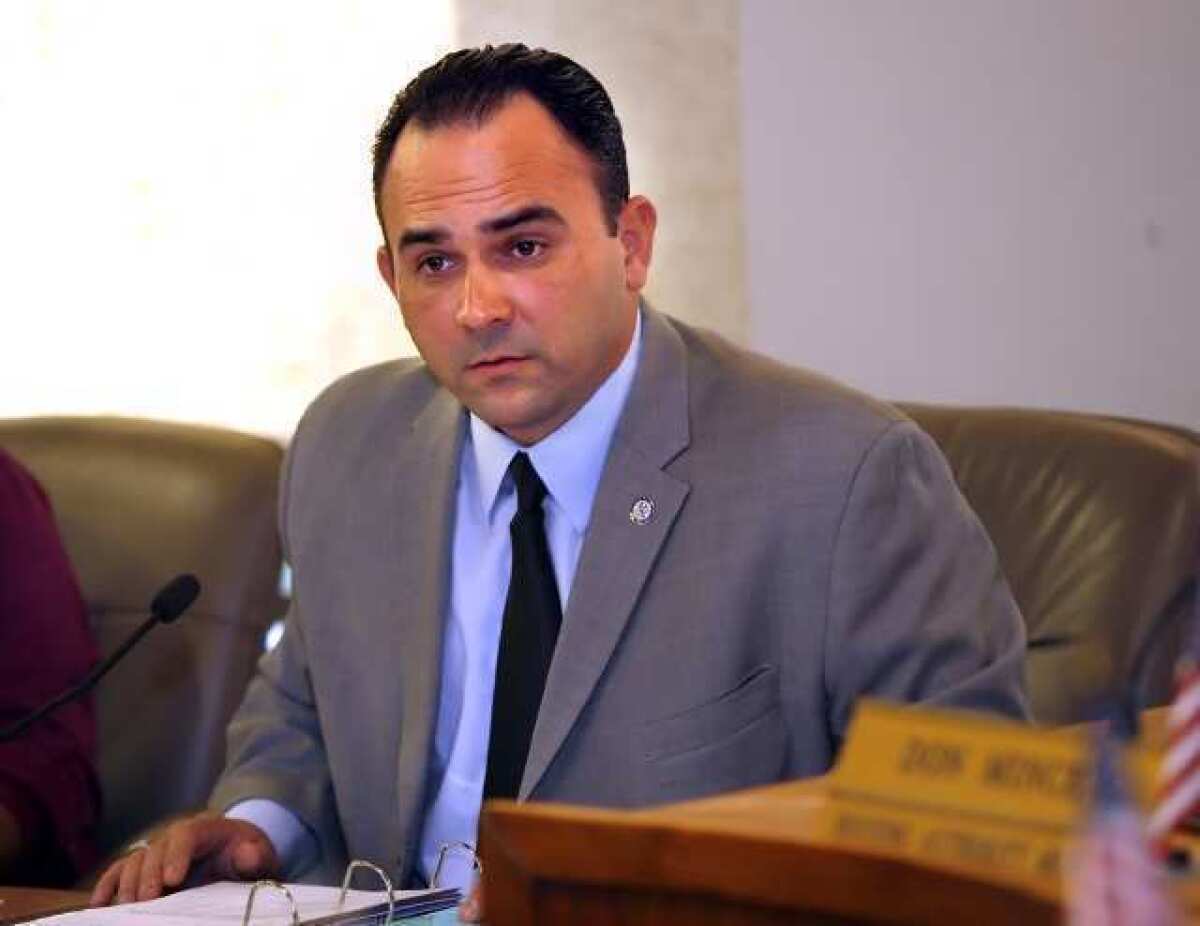Ochoa: Moving electricity money to General Fund ‘makes sense’

- Share via
City Manager Scott Ochoa went before the Glendale Power & Water Commission on Thursday to defend annual multimillion-dollar transfers from the utility’s electric fund to the city’s General Fund, which some residents have complained leads to artificially high rates.
The city plans to transfer $21 million from the electric fund in its upcoming fiscal budget, and an advisory committee has been formed to look at possibly increasing the electric rate by Sept. 1.
“The City Council is concerned about the transfer,” Ochoa said. “It’s focused on reducing the size of the transfer, but doing so in a way that makes sense for the organization and for the community with respect for all of the different service levels that comprise the city of Glendale.”
In fiscal year 2000-01, the city transferred about 9% of the almost $120 million it generated in retail electric sales, Ochoa said. The planned $21-million transfer makes up about 12.3% of projected sales.
“That is, at the end of the day, what the butcher’s bill is,” he said. “From there, we can make any number of statements about whether we want to continue that.”
Ochoa said the declining economy had a major impact on the city’s General Fund — which pays for most public services, such as libraries, police and firefighters — so city officials tapped more electric funds to compensate.
“As [Glendale Water & Power] is part of the overall organization, council over the years saw fit to increase that transfer to offset costs to the city’s services,” Ochoa said.
Also during that time, the water transfer was eliminated, which also put added pressure on the electric transfer, Ochoa said.
City officials consider both residential and commercial customers whenever they look at utility finances, Ochoa said, adding that the city always wants to make itself attractive to prospective businesses by being cost-competitive.
He acknowledged that having an “inordinately high transfer rate is at odds with that philosophy.” But, he added, city officials can’t immediately make a drastic change to the transfer rate because it’s been in place for many years.
“I think it’s unwise, perhaps even irresponsible, to try to accomplish that all at once, and I would hope and expect that you would agree with that,” Ochoa told commissioners.
He added: “Because we view this as one larger system providing services for all of Glendale, we have to find the answer that works best — not necessarily right, not necessarily wrong, but best.”
The city is committed to cutting the transfer amount over time, with a $250,000 reduction to the General Fund in the coming fiscal year. He said he hopes to reduce the transfer by $750,000 in the 2013-14 fiscal year.
The ultimate goal would be to have the rate down to the industry standard of 7% to 8%, he said.
“That is no easy task,” he added.
Ochoa did not go into details about any electric rate increase.
An advisory committee — made of up of representatives from the umbrella organization for Glendale’s homeowners associations, businesses, hospitals and the school district — met for the first time Thursday to hear about the challenges facing the utility.
The utility commission is expected to hear any recommendations from the committee during a meeting on July 19, and any proposed rate increase would go before the City Council on July 24, said Ramon Abueg, assistant general manager of the electricity side of the utility.
